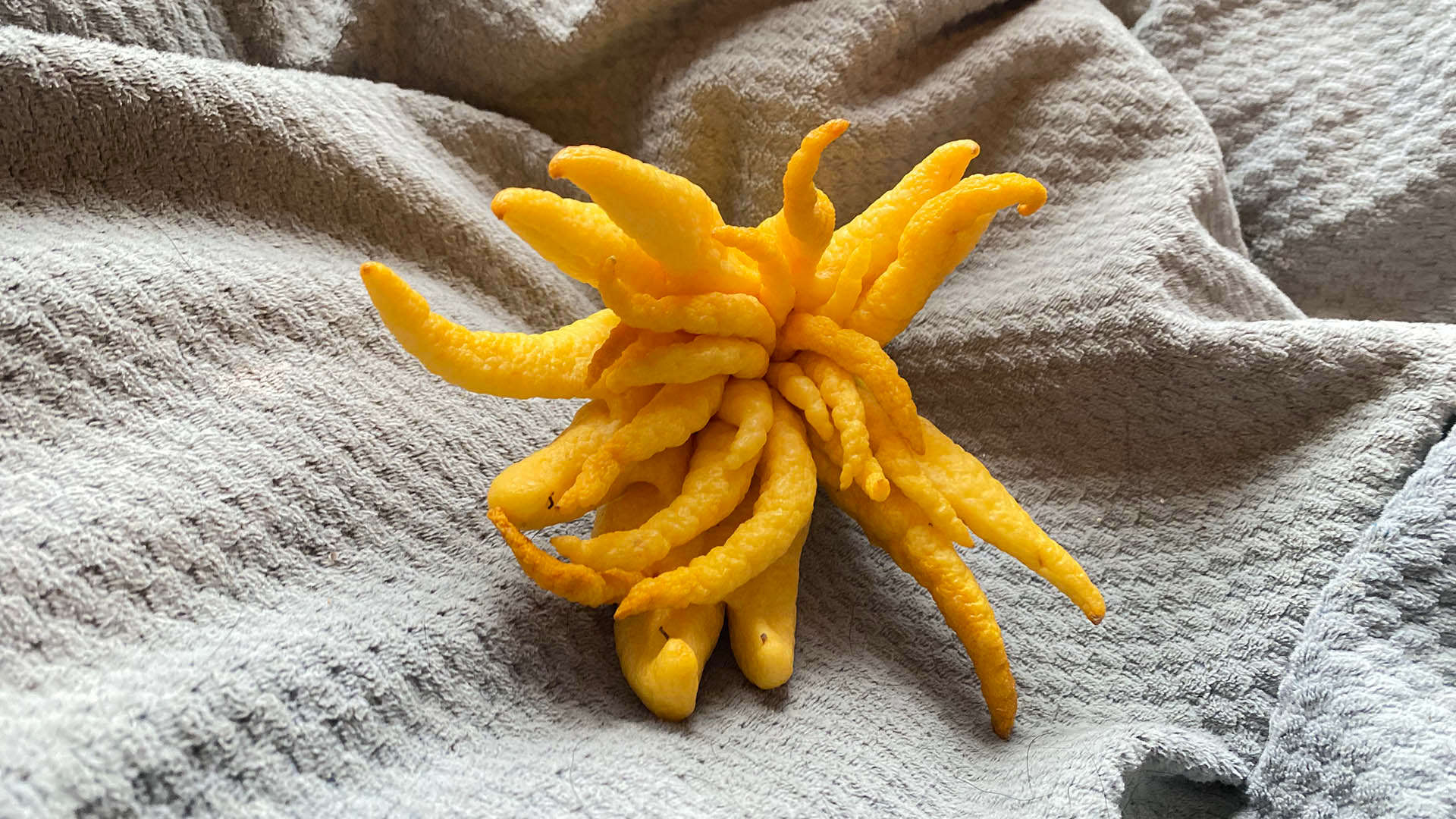Last Call: What Should I Do With My Buddha's Hand?
This is a Buddha's hand. It's a type of citron from south Asia with a profusion of long, slender "fingers." It got its association with Buddha from the Buddhist monks who carried it from India to China in the fourth century. Because of its shape, it doesn't contain much pulp or juice, which makes it pretty useless as food, but that doesn't matter because it smells divine. "Divine" in the sense of dazzlingly beautiful, not holy, because I have no idea what the historical Buddha smelled like.
Buddha's hand smells a bit like a lemon, but sweeter, almost floral. It's reminiscent of the perfume diffusers in expensive hotel lobbies, but more natural. I bought my Buddha's hand more than a week ago from my local grocery store. It has sat on my desk ever since, making the entire room, and sometimes adjoining rooms, too, smell beautiful.
The internet tells me that making rooms smell nice is its main purpose; in Japan, where it's called bushukan, people sometimes place it in their tokonoma alcoves, traditionally reserved for displaying beautiful things. In China, it's a symbol of happiness and long life. Because it blooms in early to midwinter, November through January, it's a popular New Year's gift.
Buddha's hand weren't commercially grown in the United States until the 1980s and are still very rare. This is because, a Sunkist spokeswoman explained to MarthaStewart.com, each fruit must be hand-cleaned with a brush, a process that takes 15-20 minutes. If it were washed with water, like other, lesser citrus, it would spoil.
Some cooks candy the rind or use the zest as a flavoring. (It's also an ingredient in traditional Chinese medicine, but I would not presume to know how to use it that way.) Maybe when my Buddha's hand stops smelling nice, I'll use the zest to flavor scones or something.
It makes me sad that Buddha's hand season is so fleeting. If someone ever made a perfume that successfully simulates its scent, I would buy it, even if it came in the form of a $100 candle. But somehow I doubt that it's possible. Like linden blossoms in early summer, it's a scent that's precious because it lasts such a short time.
This is a depressing note to start a new year on. I should be grateful that I have a Buddha's hand at all. The grocery store had only three on display when I made my regular canvass of the rare fruit corner, and that was the first time I'd seen Buddha's hand there in several years. So maybe I'll take it as a good omen.
